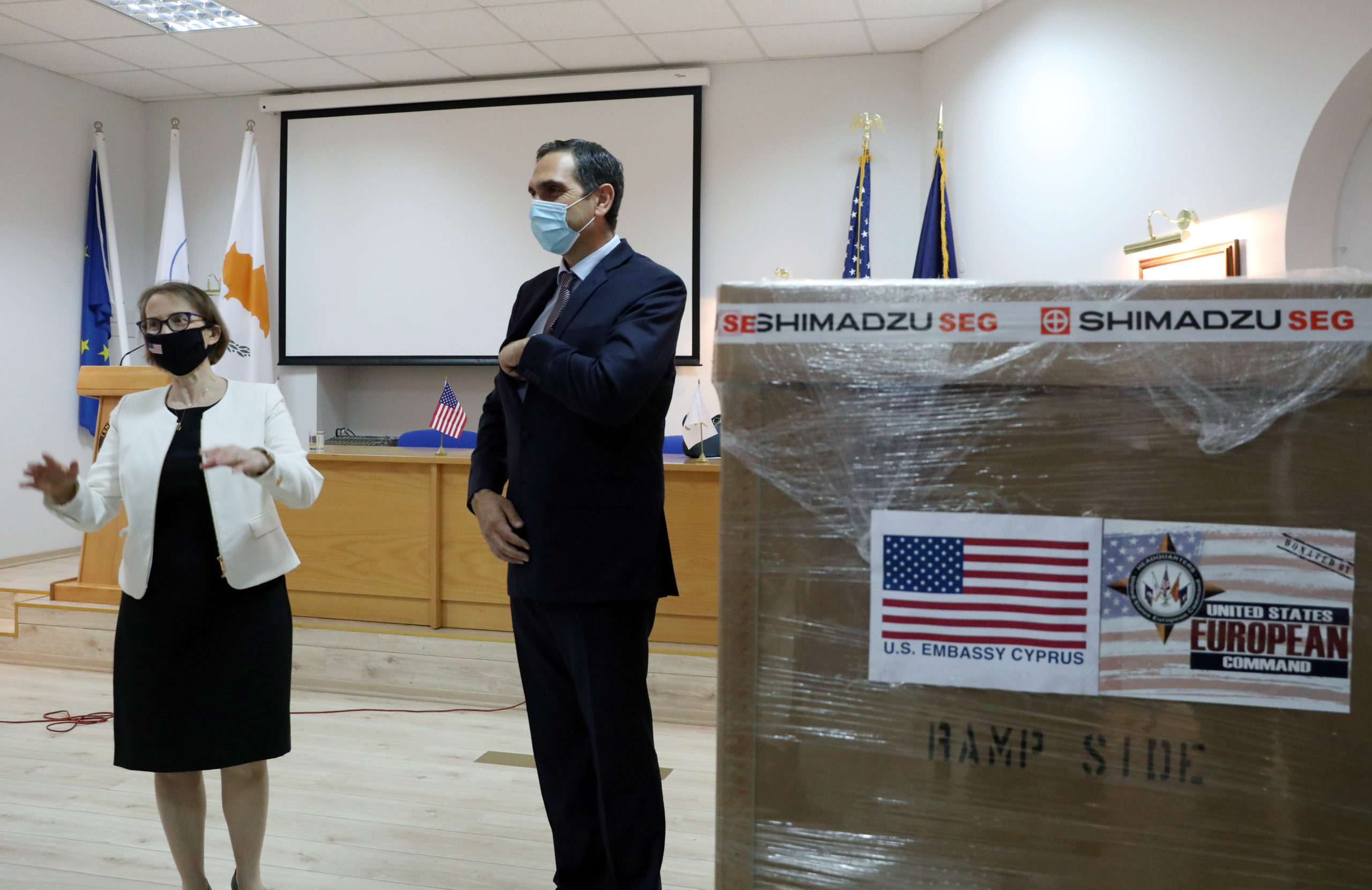The US has donated two mobile digital X-ray machines to Cyprus for helping to treat COVID-19 patients at Nicosia and Larnaca General Hospitals.
One of the machines was handed over on Thursday by US Ambassador Judith Garber, to the Minister of Health, Constantinos Ioannou, during a ceremony at Nicosia General Hospital.
Garber thanked the Cyprus government for its efforts against the COVID-19 pandemic.
She expressed profound gratitude to all healthcare workers for their dedication and sacrifice to try and keep everyone safe.
“The good news is that vaccines are now here, and as President Biden has said, the light at the end of the tunnel is going brighter and brighter.
“What’s been really clear is that no one country can address this pandemic alone. So, I am really proud today to be able to donate these two X-ray machines at a value of €164,000.”
It is the fifth donation of medical equipment and supplies by the people of the US to the Republic of Cyprus via the US European command that has provided direct COVID-19 assistance to 145 projects in 24 different countries.
“My country has contributed $12.5 billion for the global response, for vaccine, therapeutic development, preparedness in humanitarian assistance.
“We have donated 16 million vaccines worldwide for humanitarian purposes for those who are most in need, and the Biden administration has pledged $2 billion to COVAX.”
Ioannou said in these unprecedented times, the contribution of the US Embassy enhanced Cyprus’ effort.
“Your strong support all these months was shown through acts of solidarity towards frontline health professionals at hospitals.
“The portable machines will facilitate diagnosis and treatment for COVID patients, who cannot move because of their health condition, but also be used in the future to offer better treatment to all patients,” Ioannou said.
Officials said the two digital mobile X-ray units are essential as they offer numerous advantages compared to the old analogue systems.
Advantages include higher throughput, quicker diagnosis, improved image quality and more patient-friendly.
It allows doctors to access the images from anywhere or seek a second opinion from anyone globally.










